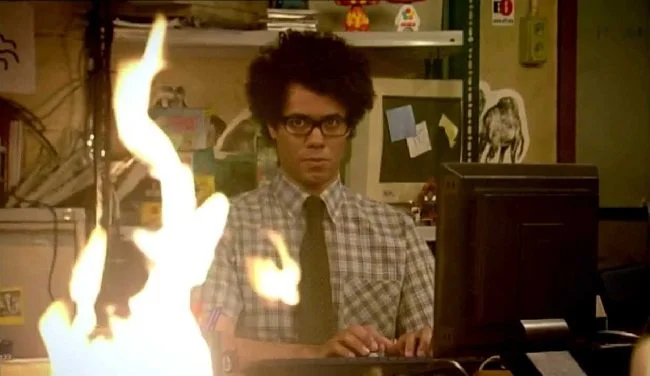A Year in Movies
I have always enjoyed the experience of going to the cinema and I still consider it a great night out. Watching an engaging film with good company and then discussing it afterwards over drinks or a meal is one of life’s great pleasures. Sadly, over the course of 2017 I’ve only gone to see a movie at my local multiplex three times. This has nothing to do with audience behaviour or the standard of my local cinema. Both are surprisingly good. This is all down to the films that dominated cinemas at present. Although I have no major axe to grind with the fantasy genre, I do not wish an exclusive cinematic diet of such material. I have seen sufficient Super Hero movies for the present and have become tired with high concept, blockbuster, CGI driven actionfests. It concerns me that viewers who predominantly watch such movies are missing out on a wealth or broader material that could expand their tastes and horizons. I could also argue that mainstream cinema is becoming increasingly infantilised but perhaps that is best left for another blog post.
A ticket at my local cinema costs between £9 and £12. Prices vary often according to the movie and its distributor. I paid several pounds more than usual when seeing Star Wars: The Last Jedi for example. There is also the additional cost of travel as well as food and drink to be considered. So, it is not unusual for me to spend £25 even if I just go on my own. Although this is not an exorbitant sum, I do think long and hard about whether the film being seen will be sufficiently entertaining, before committing to buying tickets. All too often the movies do not inspire or enthuse me enough to justify a visit. Furthermore, the gap between a movies theatrical release and its availability for home viewing, seems to be getting shorter and shorter. Blade Runner 2049 was shown in theatres from October 6th. It became available on iTunes on December 26th, less than two months later. Furthermore, some titles if they perform poorly in certain regions will subsequently bypass the cinemas elsewhere and go directly to streaming services. This also happens for films that have faired well at the box office. Sometimes services such as Netflix or Amazon Prime will pay a premium to have access to certain titles early. I was surprised to find The Foreigner starring Jackie Chan appear on UK Netflix from December 15th.
So, bearing all the aforementioned points in mind, I have managed to select three movies I feel are good examples of quality film making in 2017. Of this three, the first one I saw in the cinema upon its release. The other two I saw via VOD. First off, there was Christopher Nolan’s Dunkirk. A minimalist (in so far as dialogue) retelling of the Dunkirk evacuation of 1940, narratively framed within three simple, yet absorbing tales of heroism. An Intelligent and thought-provoking piece of cinema without any nationalist or political posturing, although some tried to erroneously couch it in those terms. Next was Edgar Wright’s old school action thriller Baby Driver. This is a film that works well on multiple levels. It is a wonderful homage to sixties and seventies heist movies. It also a well-crafted thriller and human drama. It has great performances, prefect editing and pacing with an eclectic yet innovative score. Finally, I was surprised and immensely impressed by Vince Vaughn’s performance in Brawl in Cell Block 99. Directed by Craig Zahler (Bone Tomahawk), this character driven drama about a prisoner who is forced to extremes to protect his family and settle a debt, features worryingly credible fights, all framed and edited in a style that flies in the face of the contemporary cinematic aesthetic. Yet it is still the story and acting that dominate the proceedings.
Setting aside the issue of the respective quality of mainstream Hollywood film making, there is another issue that has reached a head in 2017. Professional movie criticism has found itself increasingly at odds with fandom. Furthermore, fandom has become more adversarial in its relationship with film makers. The subtlety and nuance of a well-considered review, written by a cinematically literate critic, has been eclipsed by the arbitrary and two-dimensional nature of review aggregation websites such as Metacritic and Rotten Tomatoes. Distilling a movie into just a mark out of five is not exactly good for engendering balanced and broad cinematic appreciation. Also, such aggregation services can be manipulated to make “a point”. Furthermore, the recent fan furore over Star Wars: The Last Jedi shows that for many viewers, their relationship with film is inherently different from others. They see big movie franchises as vehicles for fan service; things to be crafted to their specific desires. The notion of cinema as art and as such being subject to the vision and whims of its makers, does not sit well with them. This perspective has odd parallels with that erroneous crowdfunding mindset and the misguided notion that simply because you like and financially support something it somehow guarantees creative input. Fandom may well end up being a contributory factor to the death of the blockbuster franchise movie.
It is customary to make prediction regarding the forthcoming year. The only one I feel confident in making is that I shall probably go to the cinema less in 2018. Despite some high-profile failures, the main studios seem to still have nothing but sequels, reboots and big budget tentpole releases lined up for the next twelve months. Thankfully, there is a healthy market for older, obscure and cult movies on home media and streaming. Furthermore, these are often remastered and released in high definition. So, although I may find myself absent from my local multiplex, I doubt if I’ll want for quality entertainment. As for titles that I’m looking forward to, I await Paddington 2 to be released on VOD. I’m also intrigued by Guillermo del Toro's The Shape of Water. I suspect that this may well be a serious Oscar contender. Then of course we should not overlook that both Netflix and Amazon Prime are now making their own feature films. They have both the budgets and the market research to entice known directors to work for them. Again, this change in consumer habits has scope to have a major impact upon film in 2018.




























